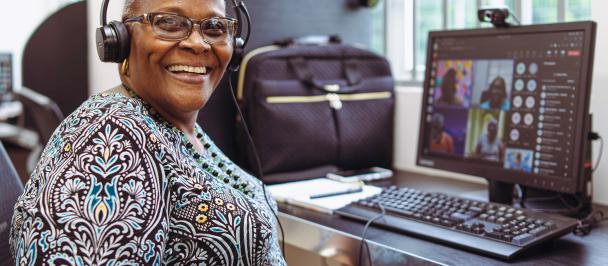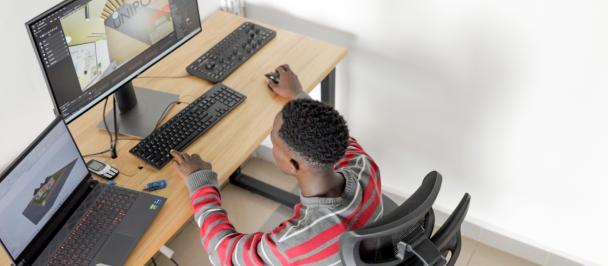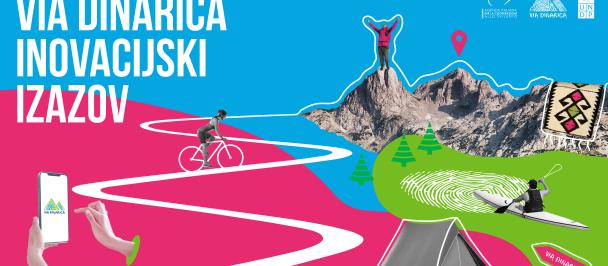Far-North Cameroon: Empowering Security Systems for Scaled-Up Safety in Crisis-Affected Communities
August 16, 2023
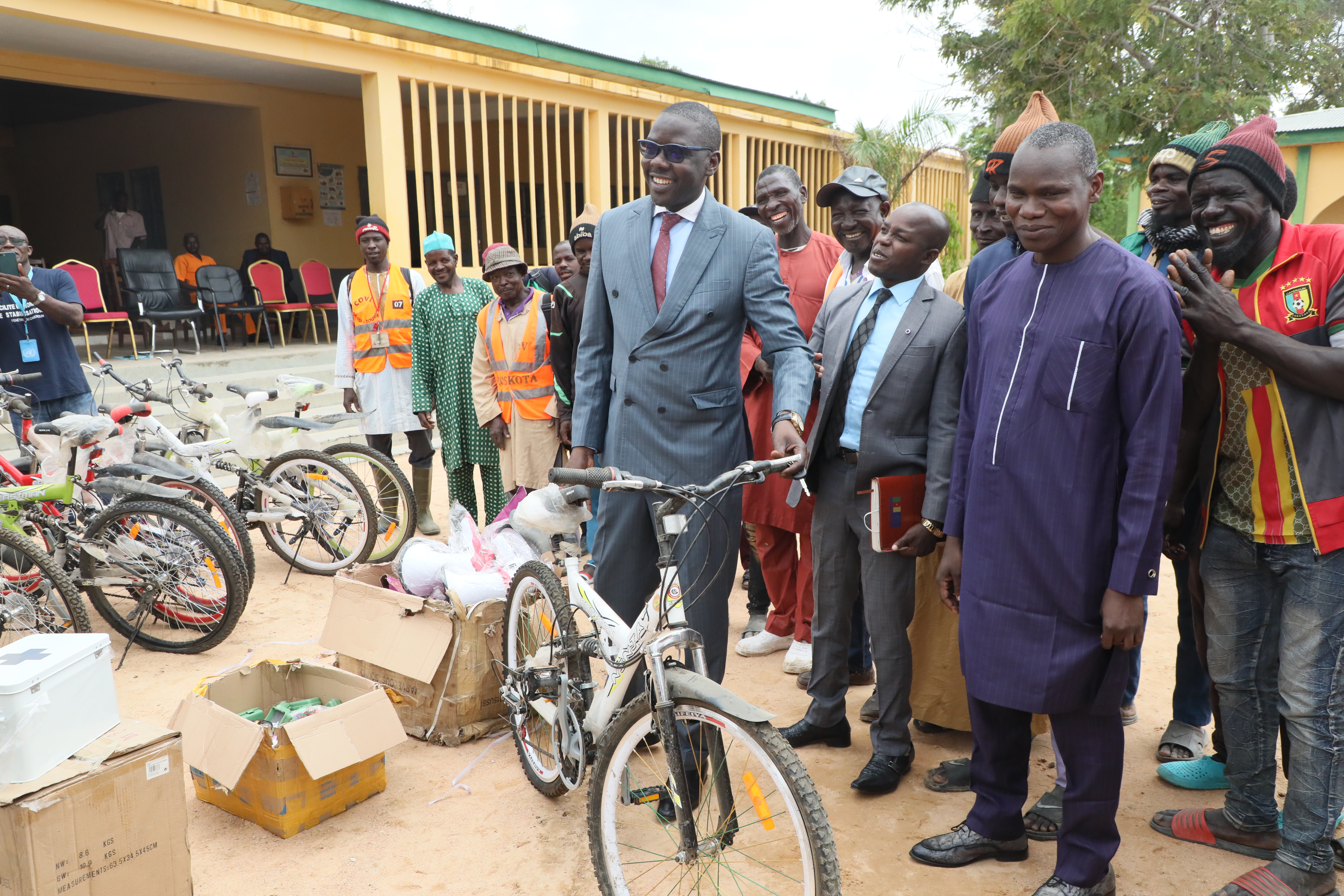
UNDP-CMR-A cross-section of the vigilance committee members receiving work materials-2023
As part of UNDP-RSF Cameroon’s actions to continue improving security systems, building, and maintaining the population's confidence in the peace process in the crisis-affected communities of the Far-North Region of Cameroon, the Facility, in collaboration with the Governor of the Region, empowered security and law enforcement stakeholders through the provision of training and work materials. The actions are aimed at scaling up the response of vigilance committees to early warning against infiltration and attack by armed groups and improving the behaviour of law enforcement actors with respect to the local population and their human rights.
Empowerment of Civilian Law Enforcement Agents through Training and Provision of Work Materials
Following incidents of armed activities, the project sensitised the affected populations of Mokolo, Moskota, and Tourou on their contribution to improving the security of their communities, reinforced the skills of the vigilance committees, and provided them with work equipment to promptly detect and alert local authorities, security services, and the community in the event of danger.
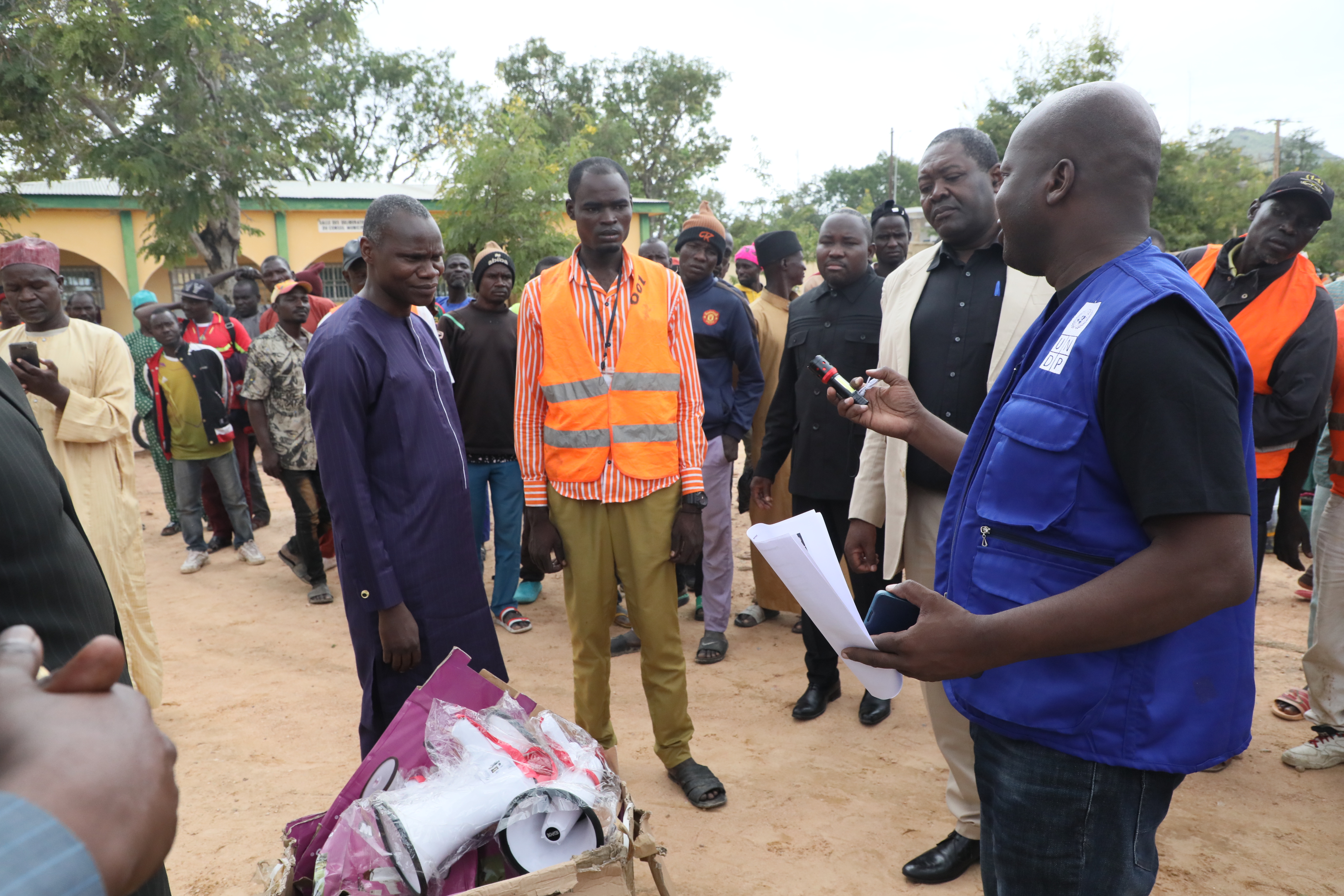
UNDP-CMR-Training of the vigilance committee on the usage of the Materials Provided-2023
The materials distributed include 1000 raincoats, 1500 boots, 300 torches for night vision, 200 bicycles for patrolling, 100 mobile phones, 600 whistles for alert, 50 binoculars, 30 first-aid kits, and 50 megaphones, among others. In collaboration with the local authorities and traditional leaders, a follow-up mechanism was put in place to ensure the appropriate use of the materials.
"Before, it was very challenging to do our work; communication was difficult, and we couldn't move on time. Today, we are very happy; the training and equipment received are significantly facilitating our work. We can now move fast across the community, especially during night patrols, and communicate rapidly with the police while locating them through our GPS. Also, we can now mobilise the entire community promptly in case of an attack. The security situation in our community is significantly improving thanks to the project’s support." Mr. Abe Silas, president of the Tourou sector vigilance committee
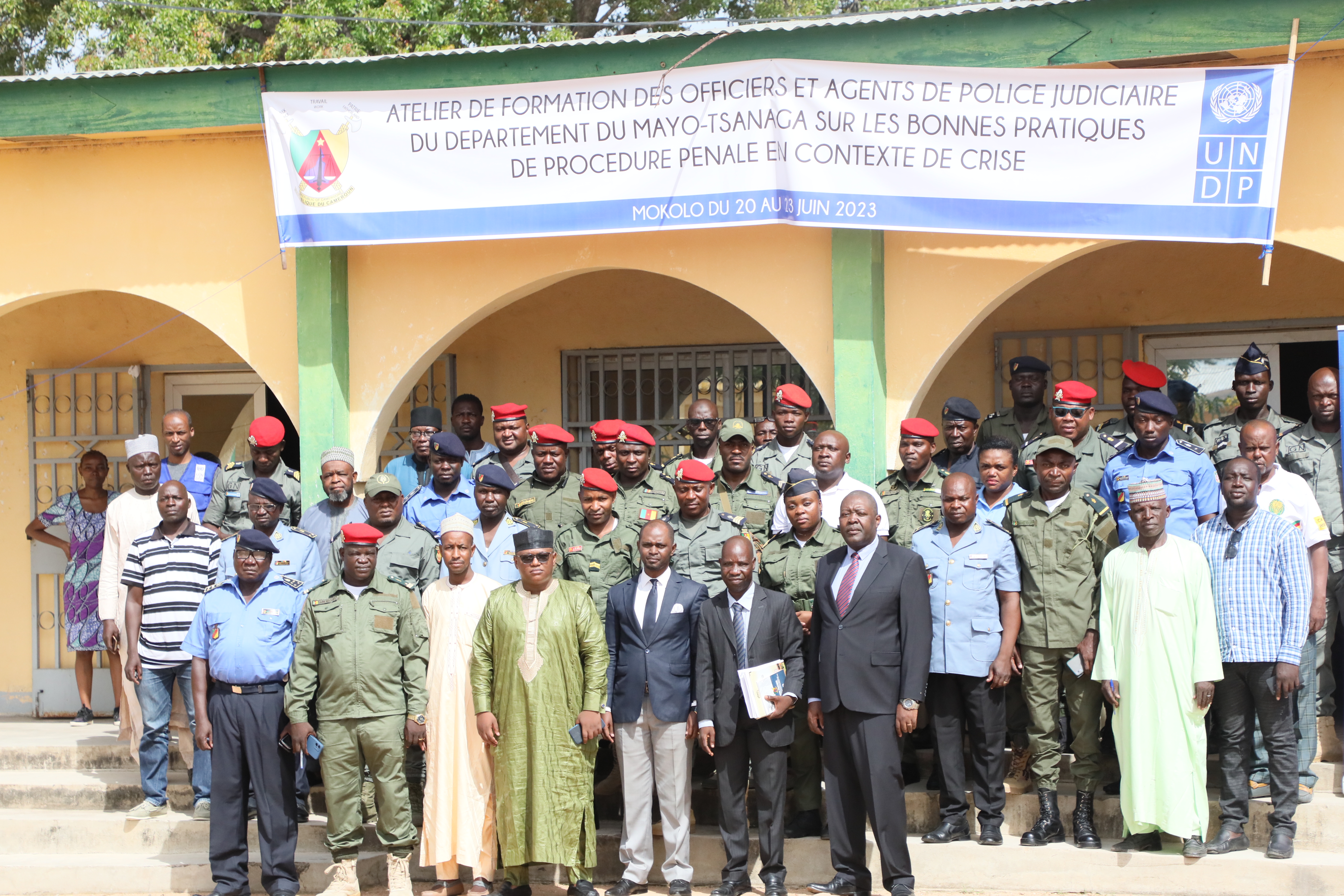
UNDP-CMR-A cross-section of the judiciary staff trained in Mokolo-2023
Empowerment of Judicial Staff on Good Practises in Criminal Procedures in the Crisis Context
To improve the relationship between the population of the Mayo-Tsanaga Division and the established judicial system, including the law enforcement and security forces, and to lay the foundations for effective, conscious, and sustainable civil-military cooperation, the project sensitised and reinforced the capacities of the Mokolo Judicial Staff (police officers and agents) on the appropriate use of the Penal Code and the regulatory and legal guidelines for professional ethics and deontology, as well as the penalties for breaching them.
The training focused on the rules of criminal procedure in a crisis context. It updated the knowledge of the judicial staff on monitoring judicial custody at police stations and gendarmerie brigades. The training also laid the foundation for creating a platform for consultation between the judiciary staff in ordinary courts and those in military justice services.
At the end of the training, the heads of the judiciary system (the police, gendarmerie, customs, and forestry and wildlife units) were oriented on legal procedures, and each of the judiciary staff was provided with a copy of the manual for good practice in criminal procedures in a context of violent extremism.
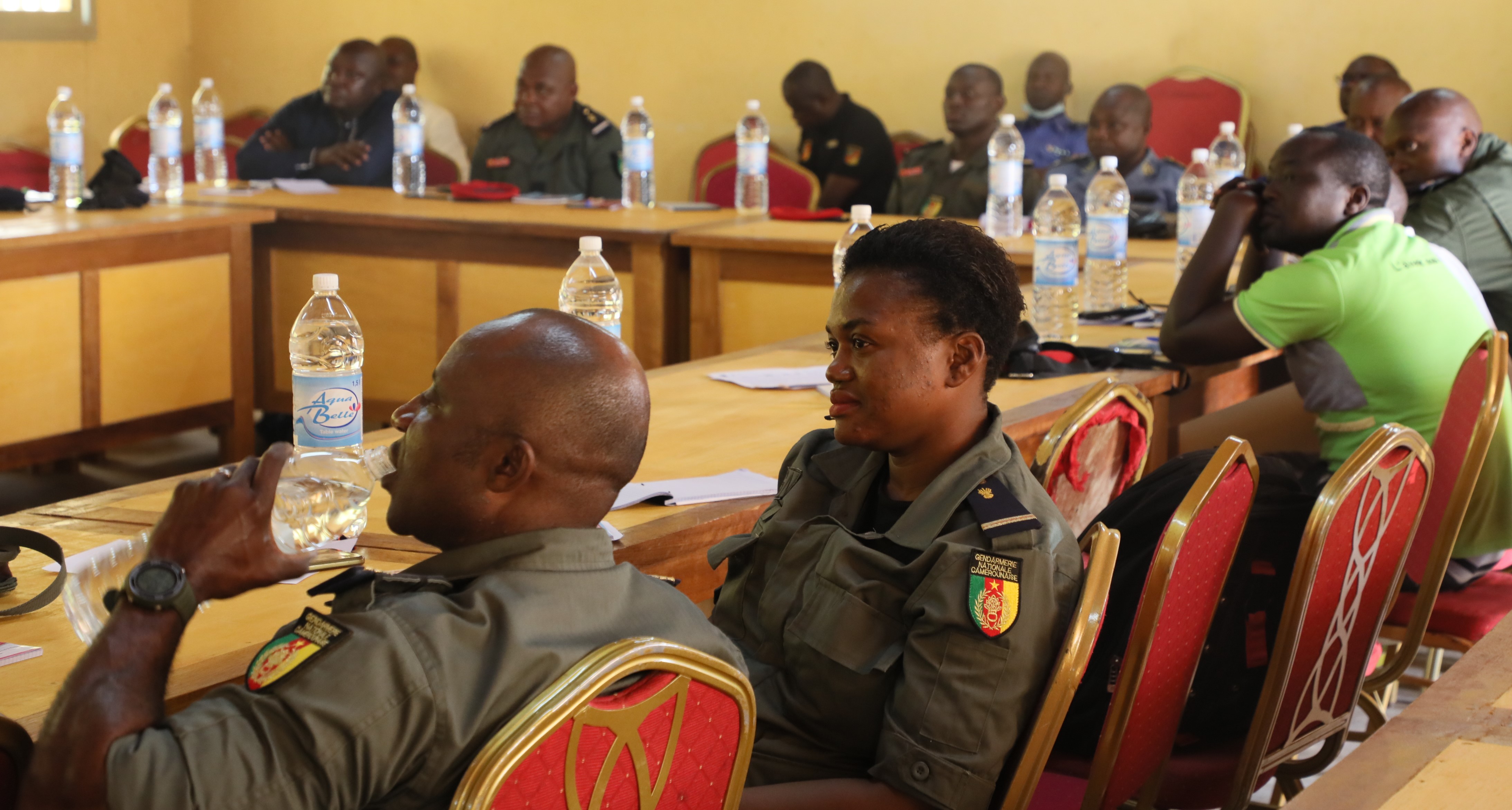
UNDP-CMR-A cross-section of judiciary staff during the training-2023
"The workshop enabled us to identify our areas of need and provided us with skills to improve them, especially the enhancement of safety management, execution of procedures, and maintenance of administrative and judicial order in this context of extremism in our Region." Ms. Noumbissi Alvine, Chief Warrant Officer, explains while highlighting other areas of need.
"We lack conducive workspaces, staff accommodations, and transportation means. While we appreciate the infrastructure provided to the judiciary services of other Divisions in the Region, we solicit for the same in the Mayo-Tsanaga Division." Ms. Noumbissi
Thanks to continued support from the Cameroon Government and Donors, Germany, Sweden, Britain, France, Japan, the USA, and the European Union, the RSF Cameroon Window, under the aegis of the Governor of the Far-North Region, is working closely with all administrative, military, judicial, and community authorities to foster the stabilisation of the Region.
"In addition to empowering the staff of the judiciary system in 12 Communities, we have also built 77 infrastructures, including administrative buildings, schools, gendarmeries, police stations, solar energy systems and streetlights, and 44 boreholes that are providing access to drinking water for thousands of people. Our mission to ensure that hope is reborn and prospects are again bright is in progress. We are assessing needs and building back better across the region, starting with the most vulnerable communities." Christophe Charbon, Head of Stabilisation, Cameroon Window
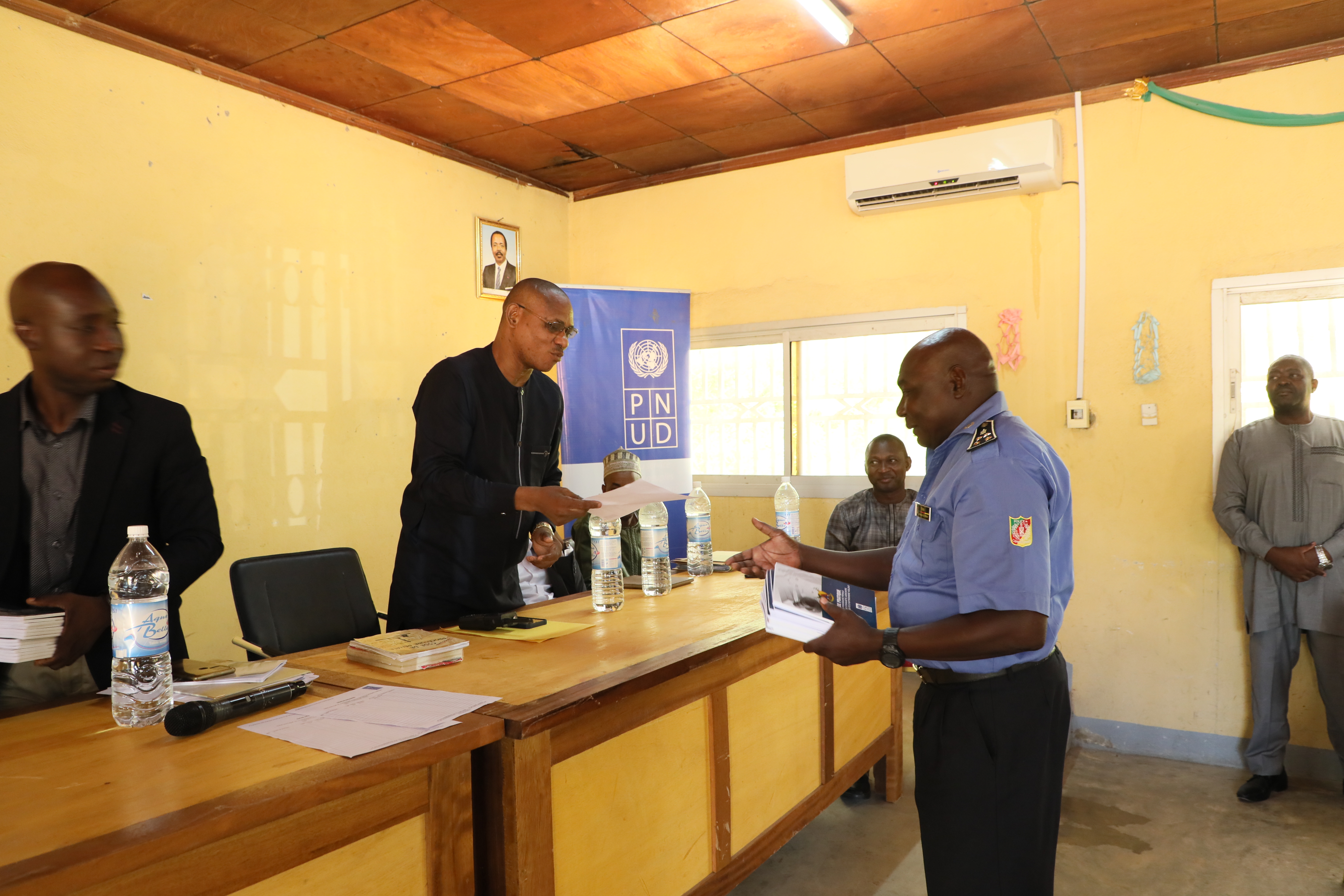
UNDP-CMR-Distribution of the Manual for Good Practice in Criminal Procedures-2023
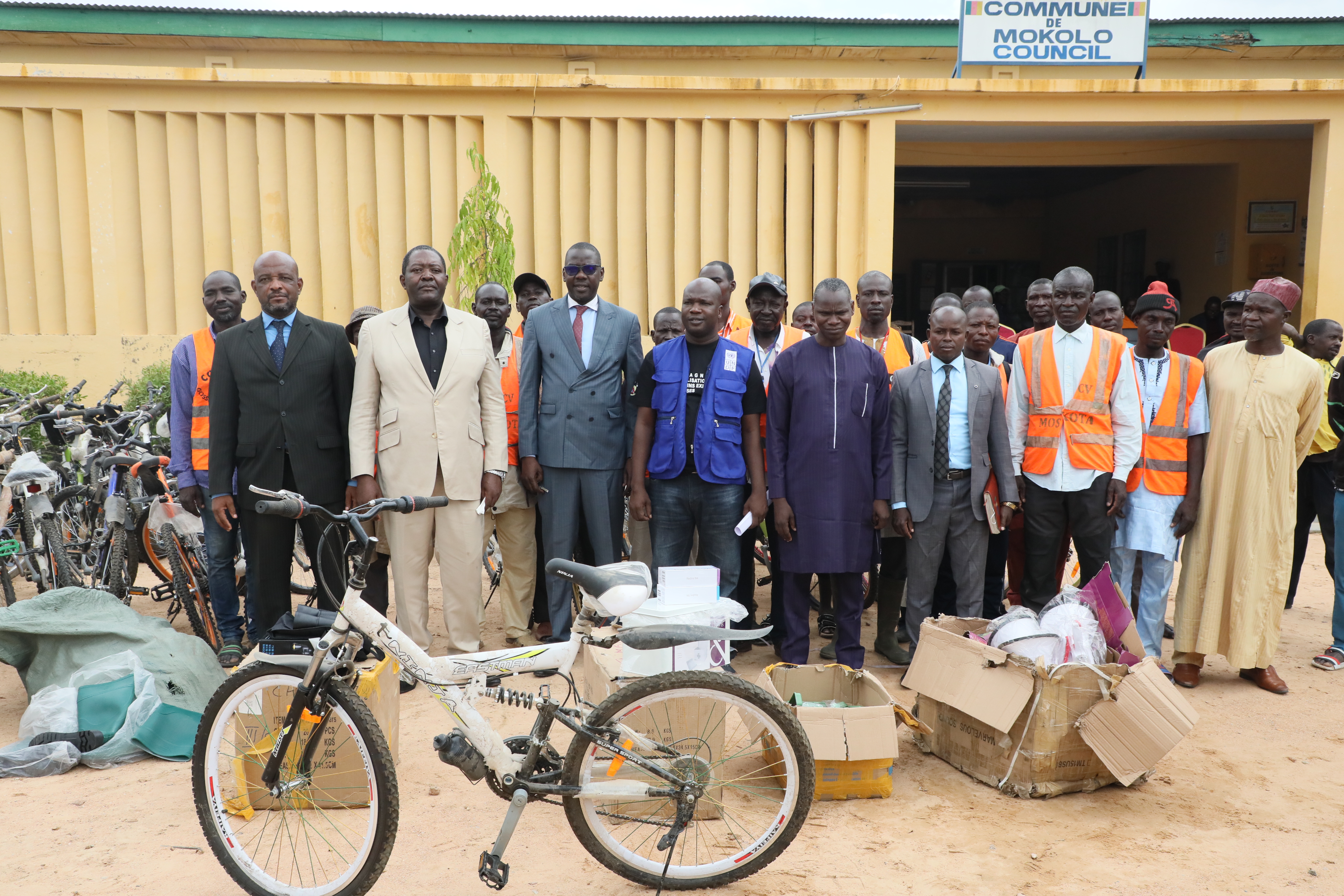
UNDP-CMR-A cross-section of vigilance committees during the reception of materials in Mokolo-2023

 Locations
Locations